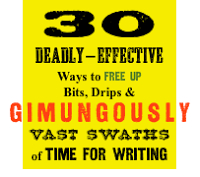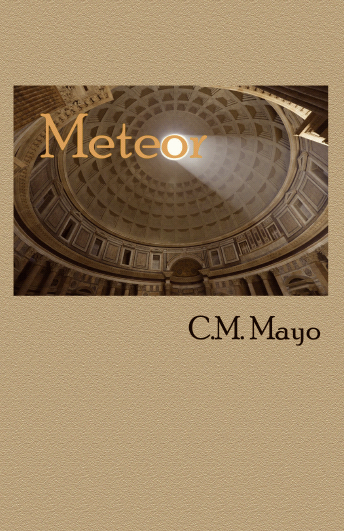
I have been on Facebook since 2008, back when I was about to start the tour for my novel The Last Prince of the Mexican Empire. It was my amiga the crackerjack historical novelist Sandra Gulland who urged me to sign up. No question, Sandra was right, FB is a powerful way to get the word out about my books, podcasts, lectures, workshops and book signings.

Plus, FB has been an unexpected pleasure: I could keep up with family, both close and distant, and friends, new, old and previously long-lost. I smiled wide to see photos of a relative’s 80th, jokes and memes posted by cousins and neighbors, videos of the antics of one of my old book editor’s puppies, and so on.
In that torrent of FB feed arrived many treasures too, such as artist Hope Swann’s daily door picture; gorgeous paintings by other artist friends including Mariló Carral, Kelley Vandiver and Edgar Soberon; a video— I forget who “shared it”— of a 90 year old yoga teacher; links to read about fascinating books; political news in Mexico and abroad which I might have missed otherwise; news of a dear friend’s book prize (yay, Leslie Pietrzyk!!); and oodles more.
I am grateful to FB for providing this platform, and grateful to my FB friends (and friends of friends) who have helped make it such a richly interesting experience. (And muchas gracias, Mikel Miller, for recently forming the Mexico writers group on FB and so energetically championing my writing there—and including a chapter from my book on Baja California in your Kindle anthology, Mexico: Sunlight & Shadows.)
In sum, as many of you well know, there are excellent reasons to participate on FB. Nonetheless, after months of dithering, I deactivated my account.
Here’s why:
1. I find it increasingly unsettling that a corporation not only mediates my interactions with my friends and family but also shapes them by its algorithms, then harvests and sells the data on those interactions to third parties. (Translation: it’s looking a mite too 1984.)
2. Not all, certainly, but much of the FB feed is trivia—(I love you, N., but I don’t need to see the sandwich you ate yesterday in Barcelona)— or upsetting (I agree with you, J., that animal abusers should be punished, but I’d rather not have been slammed with the photos). Some of the FB feed is assuredly not trivia— the passing of a beloved grandfather, the birth of a baby, a child’s graduation, the adventure of a lifetime— but because of FB’s algorithms, posts are broadcast to “friends” its bots deem relevant, and it can become so. I mean, if S. didn’t invite me to her birthday party, why did she imagine I would want to see a photo of her blowing out her birthday candles?
(I’ll admit, maybe I never “got” FB in this regard; I rarely posted anything from my personal life. In the real, meatspace world, social networks are intricately nuanced; FB, for all its “groups” and feed settings and ever-morphing privacy options, turns it into a one-size-fits-all spew. Adding nuance: I guess that’s what the algorithm engineers will be working on from the dawn of FB ’til Kingdom Come.)
3. FB is annoyingly addictive, albeit for some people more than others. For me, staying off FB like trying to diet with an open box of chocolates at arm’s reach.
UPDATE: And it’s addictive by design, of course. It’s all about hooking your brain into the machine zone.
4. If I’m going to get this out the door before I’m 94, I need more time and mental energy to finish writing my book about Far West Texas.
> Yo! Checkout the latest podcast, my interview with rodeo barrel racer Lisa Fernandes!
5. As far as book promotion goes, FB isn’t the “wow” it first seemed (especially after, for reasons known only to itself, FB changed its algorithms). Furthermore, although many of my readers are on FB, many are not, or don’t follow me there. Yes, one can create author and book “fan pages,” but that is a form of “sharecropping”— after all, FB owns the digital platform— with all the attendant disadvantages for the sharecropper. (My current philosophy: “Likes” on FB are given so promiscuously, they don’t mean much, if anything. From my own platform, that is, my website, true fans of my work, legion or scant may they be, are always welcome to subscribe to my newsletter.) Moreover! As noted above, FB sucks up time and energy that I could apply elsewhere to better effect. (In case you were wondering, for book promotion, apart from writing the next book, that would include blogging, sending out that newsletter, freelancing for magazines, podcasting, an occasional postcard campaign, and… drumroll… answering ye olde email.)
UPDATE: Speaking of “sharecropping, yes indeed, this blog is sharecropping on Google’s platform. It has been on my to do list for an age to move the whole enchilada over to WordPress. Stay tuned.
UPDATE, January 2019: Dear writerly reader, you are now reading this blog on self-hosted WordPress. Viva!
6. Though I will miss the casual interactions of “liking” and “sharing” on FB, I prefer to meet friends, family and colleagues in person, that is, on our terms, not FB’s, and also to talk on the phone or by Skype, and… more drums… answer my email.
Speaking of email: friends, family, students, readers: I am sincerely happy to hear from you! As always, you can write to me at cmmayo (at) cmmayo (dot) com. And now that I’m free of Facebook, I shall be able to answer you in a more thoughtful and timely manner.
And of course, I welcome your comments on this blog.
As ever, I blog on Mondays.
P.S. To deactivate a FB account, log in, then go to “settings,” then “security,” then click on “deactivate your account.” Oh, but FB doesn’t let you go that easily! The whole ooey-gooey-extra-velcroey process made me shake my head and laugh out loud several times. By the way, this is not the same action as deleting the account. I can imagine that I might need to log on again in order to contact someone whom I couldn’t contact otherwise, or possibly, for some other very good reason. But to participate as I did before? Definitely not.
UPDATE: Yet another reason to deactivate FB.
FURTHER UPDATE: November 2017. Still massively relieved to have deactivated FB. In case you were wondering. But still have not yet moved this blog over to WordPress… It will happen.
YET ANOTHER UPDATE: 2018: See novelist Nancy Peacock’s blog post, “Quitting Social Media.”
YE VERILY ANOTHER UPDATE, JULY 2018: Jaron Lanier’s Ten Arguments for Deleting Your Social media Accounts Right Now.
JULY 2018: A nonprofit’s take on FB.
UPDATE, JANUARY 2019: Now the battle is against Whatsapp. I wonder what’s next?

This Writer’s Distraction Free Smartphone (Plus an App Evaluation Flowchart to Tailor-Make Your Own)
Q & A: Nancy Peacock, Author of The Life and Times of Persimmon Wilson,
on Writing in the Whirl of the Digital Revolution
From The Writer’s Carousel: Literary Travel Writing
Find out more about C.M. Mayo’s books, shorter works, podcasts, and more at www.cmmayo.com.







